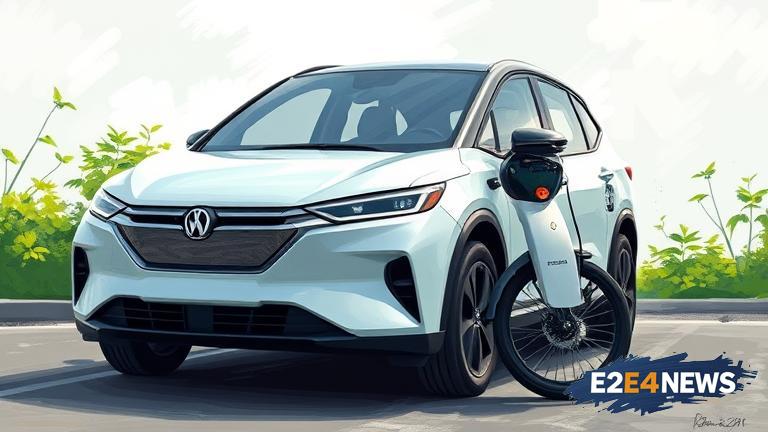The Indian government has announced a comprehensive plan to promote the adoption of electric vehicles (EVs) in the country. The plan includes a range of incentives and initiatives to encourage the use of EVs, including tax exemptions, subsidies, and investment in charging infrastructure. The government aims to have at least 30% of new vehicle sales be electric by 2030. To achieve this goal, the government will provide subsidies to manufacturers to produce EVs, as well as to buyers to purchase them. Additionally, the government will invest in the development of charging infrastructure, including the installation of charging stations along highways and in cities. The plan also includes measures to promote the use of EVs in public transportation, such as buses and taxis. The government will provide incentives to state transport undertakings to transition their fleets to EVs. Furthermore, the plan includes initiatives to promote the use of EVs in the private sector, such as providing subsidies to companies that adopt EVs for their fleets. The government will also establish a network of charging stations at petrol pumps, malls, and other public places. The plan is expected to have a significant impact on the environment, as EVs produce zero emissions and can help reduce air pollution in cities. The government estimates that the plan will help reduce greenhouse gas emissions by at least 10% by 2030. The plan is also expected to have economic benefits, as it will create new job opportunities in the EV manufacturing and charging infrastructure sectors. The government will work with private companies to develop the EV ecosystem, including the establishment of manufacturing facilities and charging infrastructure. The plan will also include measures to promote research and development in the EV sector, including the establishment of a national EV research center. The government will provide funding to startups and small businesses that are working on EV-related technologies. The plan is expected to be implemented in phases, with the first phase focusing on the development of charging infrastructure and the promotion of EVs in public transportation. The second phase will focus on the promotion of EVs in the private sector, including the provision of subsidies to companies that adopt EVs for their fleets. The government will monitor the progress of the plan and make adjustments as needed. The plan is a significant step towards reducing India’s dependence on fossil fuels and promoting sustainable transportation. The government is committed to making India a leader in the EV sector and is working to create a favorable ecosystem for the growth of the industry. The plan is expected to have a positive impact on the environment, economy, and society as a whole. The government will work with all stakeholders, including manufacturers, buyers, and state governments, to ensure the successful implementation of the plan. The plan is a major initiative towards achieving India’s climate change goals and reducing its carbon footprint. The government is confident that the plan will help India become a major player in the global EV market. The plan will also help to reduce the country’s oil import bill and promote energy security. The government will provide regular updates on the progress of the plan and make adjustments as needed to ensure its success. The plan is a significant step towards creating a sustainable transportation system in India and promoting the use of clean energy. The government is committed to making the plan a success and is working to create a favorable ecosystem for the growth of the EV industry.





